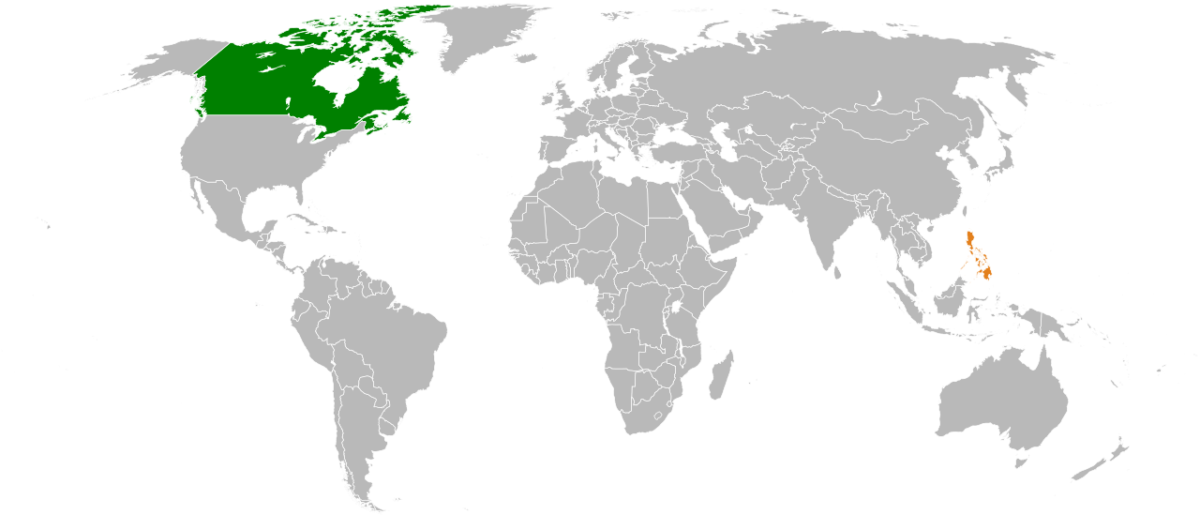by Rachelle Lynn Gordon, NCIA Editorial Staff
 On June 19, Canada became the first G7 nation and second in the world after Uruguay to fully legalize cannabis for adult use, paving the way for what is estimated to be a CAD$9.2 billion dollar industry by 2025. Canadian Prime Minister Justin Trudeau Tweeted in response to the move:
On June 19, Canada became the first G7 nation and second in the world after Uruguay to fully legalize cannabis for adult use, paving the way for what is estimated to be a CAD$9.2 billion dollar industry by 2025. Canadian Prime Minister Justin Trudeau Tweeted in response to the move:
“It’s been too easy for our kids to get marijuana – and for criminals to reap the profits. Today, we change that. Our plan to legalize & regulate marijuana just passed the Senate. #PromiseKept”
The passing of the iconic Bill C-45, also known as the Cannabis Act, was met with raucous applause from the across the globe and sent marijuana stocks soaring. Provinces and territories now have until October 17 to develop and implement their own regulations for the sale of cannabis products; according to the federal statute, adults will be able to carry and share up to 30 grams of marijuana in public and cultivate up to four plants at home.
But when will the United States follow suit and become a part of the multi-billion dollar global cannabis market?
High Time for Federal Legalization
“With leading policymakers on both sides of the aisle calling for reform, there has never been more momentum behind the effort to replace criminal marijuana markets with regulated businesses, but we still have a long way to go.” says Aaron Smith, executive director for the National Cannabis Industry Association (NCIA).
Despite the fact that 29 states, as well as Guam, Puerto Rico, and the District of Columbia, have legalized cannabis for medical and/or adult-use, the plant is still illegal at the federal level. This has led to immense headaches for business owners within the legal space who only wish for their companies to thrive but are hindered by lack of access to traditional banking and fundraising opportunities and stuck operating within individual state lines.
Lawmakers from legal states have heard their constituents’ voices loud and clear and have joined together to develop the STATES Act, short for “Strengthening the Tenth Amendment Through Entrusting States.” Introduced by Senators Elizabeth Warren (D-MA) and Corey Gardner (R-CO), the bill aims to protect states that choose to legalize cannabis by creating an exemption to the U.S. Controlled Substances Act, and would remove industrial hemp from the Controlled Substances Act entirely. The bill would also allow banks to work with cannabis businesses more easily. Representatives David Joyce (R-OH) and Earl Blumenauer (D-OR) have already introduced a companion bill in the House.
When asked about the STATES Act by reporters, President Trump replied that he would more than likely support the measure, stating: “I support Sen. Gardner, I know exactly what he’s doing. We’re looking at it. But I probably will end up supporting that, yes.”
Full Legalization Needed for Market to Thrive
Adopting a federalist approach on the issue of cannabis law reform will certainly mean that individual states will be allowed to flourish, but it stops short of the immense financial opportunities that federal legalization could bring.
“The cannabis industry is vibrant and expanding rapidly, but until the threat of federal interference is removed, our economic potential is limited,” said Aaron Smith, NCIA. “Lack of access to financial services, exorbitant tax pressures, and the absence of interstate and international commerce are all problems that we can fix by turning up the pressure on Congress.”
U.S.-based companies and investors are missing out on huge financial investment opportunities due to cannabis’ current status as a Schedule I controlled substance. According to a recent white paper released by NCIA’s Policy Council, as of February 2018, 39 of the 89 federally-licensed producers (LPs) of cannabis in Canada were publicly traded, raising a total of $1.2 billion CAD in January 2018 alone. On June 20th, it was announced that Tilray would be joining Cronos Group as the second Canadian LP listed on the U.S.-based NASDAQ; behemoth Canopy Growth is listed on the NYSE.
In late 2017, Canopy announced the sale of nearly 10 percent of its stock to U.S.-based alcohol giant Constellation Brands (known for Corona and SVEDKA vodka) for a cool $191 million dollars. Now that cannabis is legal in Canada, there are certain to be even bigger deals fastly approaching that U.S. operators are missing out on.
Impressive Advancements are Being Made – Just Not in America
The United States is also being left behind in terms of research and development and intellectual property within the cannabis space. In countries such as Israel, where the federal government appropriates money to researching marijuana, rapid advancements are being made that could be groundbreaking – and have global effects. In 2017, there were more than 110 clinical trials involving cannabis in Israel – far more than any other developed nation. It was also recently revealed that China now holds around half of the IP related to hemp in the world. This puts Americans at a disadvantage as the rest of the world competes to create innovative and life-altering cannabis medicines and technology.
“R&D requires access to capital and federal and academic support,” explains Frank Lane, President of Cannabis Financial Network. “These remain elusive in the U.S. because cannabis remains federally illegal. The U.S. is slowly allowing more University backed cannabis research but at a much slower pace then Israel, Canada and have allowed research on a federal level for years. The U.S. will be playing catch up as medical cannabis continue to be adopted globally.
Exports Expected to Rule Canadian Market
While legal domestic sales won’t begin for several months, some Canadian LPs have already been exporting cannabis products to several countries that have approved the plant for medical purposes. It was announced last October that Cronos Group had reached a deal to put their products in over 12,000 pharmacies across Germany, where the government is choosing to use their own socialised healthcare systems to handle the distribution of cannabis product to patients. Obtaining these lucrative government contracts means big money for exporters, and unfortunately for entrepreneurs from the U.S. looking to cash in may be too late by the time legalization occurs.
“Many European and Latin American countries are approving cannabis for medical use,” Lane adds. “These are billion dollar markets that countries like Canada and Uruguay are seizing because they have federally legalized cannabis and become adept at developing pharmaceutical grade products.”
U.S. Canna-Businesses Must Double Down on Reform Efforts
Until the federal government ceases to consider cannabis a Schedule I narcotic, American businesses will continue to lag behind and miss out on multi-billion dollar opportunities. Therefore, it is more important than ever that the industry continue to communicate with policymakers in order to create impactful change – before it’s too late.
Attending events such as the NCIA Quarterly Cannabis Caucus series is a perfect way to engage with local politicians and fellow entrepreneurs while also staying up to date on the latest legalization developments.
Read more about how the U.S. is falling behind in the global cannabis market in this report produced by NCIA’s Policy Council.


Follow NCIA
Newsletter
Facebook
Twitter
LinkedIn
Instagram
–